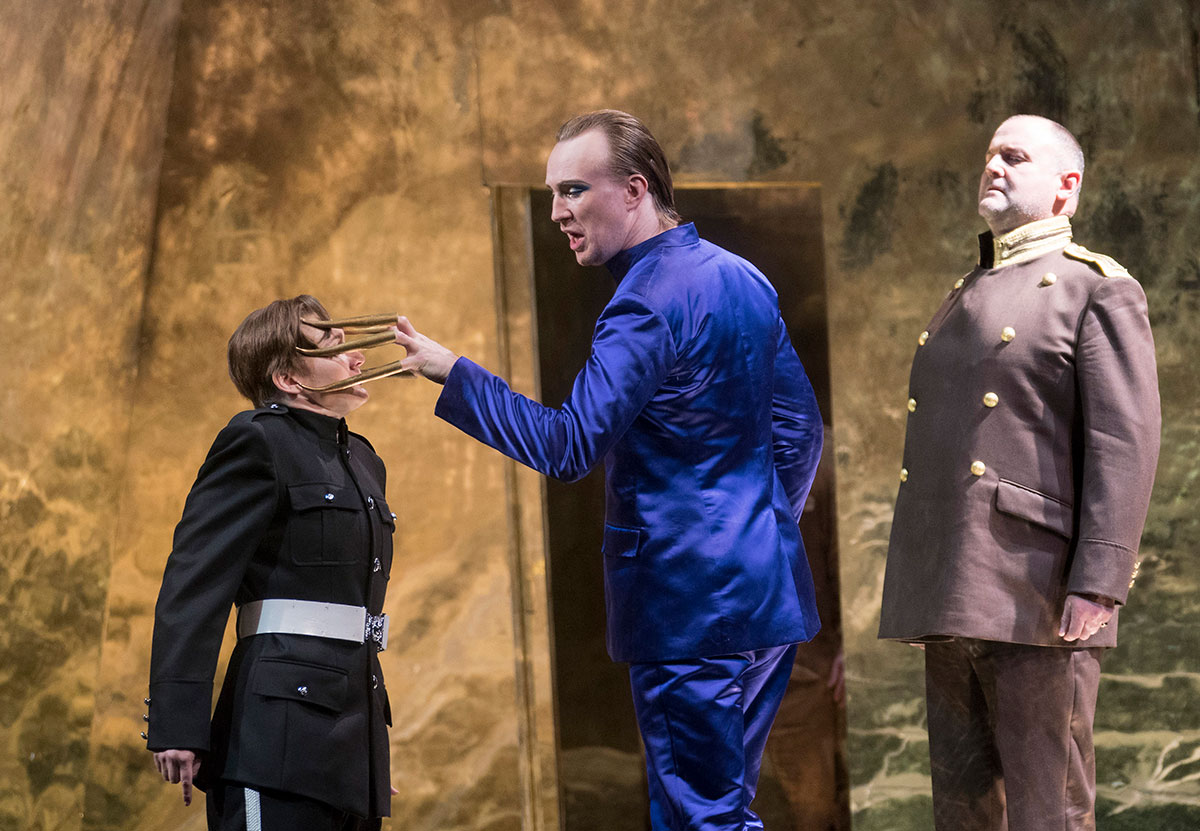George Handel’s Giulio Cesare in Egitto (Julius Caesar in Egypt), is an Italian opera first performed in 1724 in London. This opera intertwines themes of political ambition, dangerous love, and survival, all set to an innovative baroque orchestral score. Set in Egypt after the Roman Civil War, the production opens with Tolomeo, the dangerously sadistic ruler of Egypt, murdering Caesar’s rival Pompeo. When Caesar arrives in Egypt to confront Tolomeo, Cleopatra senses an opportunity to overthrow her brother and take the throne for herself by seducing the Roman Emperor.
Director Tim Albery’s revival of Giulio Cesare, first performed by Opera North in 2012, presents us with a stunning combination of set design, costume and lighting. These aspects work together to blend the traditional and modern, sweeping the audience along with the timeless, character-driven story.
The set design is striking in its simplicity. When the curtain first lifts the audience is presented with an overbearing edifice of stark grey concrete. The blasted, bullet-pocked structure conjures up thoughts of a war-torn bunker and serves as a perfect introduction for the militaristic Caesar. However, as the story progresses the two-piece set unfolds like a jewellery box, revealing a stunning golden interior that serves as the setting for the intimate Egyptian scenes. Likewise, the lighting created by Thomas Hase is cleverly used to contrast the two opposing cultures of the Romans and Egyptians. Caesar’s scenes feature a harsh white light shining from above severely on to the concrete set. In contrast, the Egyptian scenes have warm low-level candlelight glowing upon the characters, creating an intimate and rich scene against the gold backdrop of the pyramid set. Both lighting and set work to further emphasise the cultural and political divide between the two societies, creating a tangible tension across the stage.
Albery’s influence is further demonstrated through the choice to cast the roles of Caesar and Sesto to women. While these roles could have been cast as countertenors (high male voice), Albery chose to maintain the spirit of the original production’s use of Castrati (yes, that means what you think) while updating it to the modern era by casting contralto Maria Sanner (Caesar), and mezzo-soprano Heather Lowe (Sesto) in traditionally male roles. Both Sanner and Lowe give exceptional performances, Sanner has a commanding and strong presence on stage, and Lowe powerfully portrays the pain and emotion of Sesto throughout the opera.
The only criticism to put forward of this brilliant production is that, despite the story featuring Egyptian and Roman characters, there are no people of colour in the cast. This inclusion of diversity would have added depth and realism to an otherwise flawless production.
Whether you’re an opera newbie or seasoned veteran, there’s something for everyone in this production. If you’re tempted to explore the world of Caesar and Cleopatra for yourself, Opera North runs an Under 30s Scheme where you can gain access to great tickets for only ten pounds.
Image Credit: Opera North

